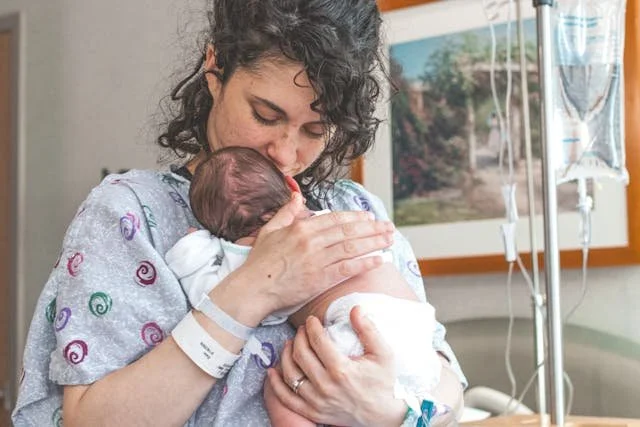Patient Retention in Specialized Telepsychiatry Services
Mental health has seen a surge in telemedicine services in recent years, which has proven to be a valuable tool for delivering psychiatric care to patients who may not have easy access to in-person care.
Lunapress Mental Health Insights
Categories
- Abortion 2
- Anxiety 18
- Birth Control 2
- Body Image 4
- College 1
- Consent 2
- Contraceptives 2
- Dating 2
- Depression 8
- Fatherhood 1
- Fertility 4
- Friendships 8
- Greif 5
- Health 2
- Healthcare Disparities 4
- Hormone Therapy 4
- LGBTQ 2
- Maternal Mental Health 6
- Menopause 10
- Menstrual Cycle 2
- Mental Health 64
- Miscarriage 7
- Motherhood 35
- New Beginnings 1
- Parenting 11
- Postpartum Depression 12
- Relationships 9
- Self Care 27
- Self-Help 38
- Social media 1
- Teen 7
- Therapy 8
- Trauma 9
- Womanhood 2
- Work 5

What Is an Anxiety Attack?
Anxiety is a common experience that affects millions of people worldwide. While everyone feels anxious from time to time, particularly in stressful situations, anxiety attacks can be much more intense and overwhelming. They can disrupt daily life and may feel as though they come out of nowhere, leaving those affected feeling scared or confused. In contrast, panic attacks are sudden, severe episodes of intense fear that can mimic the symptoms of serious medical conditions like a heart attack. This article will explore what an anxiety attack is, how it differs from a panic attack, and what steps you can take to manage these episodes and improve your quality of life.

How to Prevent Birth Trauma?
Childbirth is often portrayed as a joyful and transformative experience, but for many women, it can also be a source of emotional and physical trauma. Birth trauma can result from various factors, such as medical interventions, lack of support, or complications during delivery. The impact of a traumatic birth experience can be long-lasting, affecting both the mother’s mental health and her relationship with the baby. In this guide, we’ll explore the causes, symptoms, and preventative measures for birth trauma, as well as strategies to promote physical and emotional recovery postpartum

How Can Birth Trauma Affect a Child's Development?
Birth is a monumental event, bringing joy and excitement to families. However, it can also come with challenges that are often unexpected. For some, the birthing process can result in complications that lead to what is known as birth trauma, a condition that can affect both the mother and the newborn. While much of the attention is often focused on the mother’s recovery, the traumatic birth effects on a baby can have lasting consequences that influence their physical, emotional, and cognitive development. In this article, we will explore how a traumatic birth experience can impact a child’s growth, the signs to watch for, and how parents can help support their baby through this challenging process.

How Common Is Birth Trauma?
For many, childbirth is the start of a new chapter filled with joy and anticipation, but for others, it can be a traumatic and life-altering experience. Birth trauma is a serious issue that affects both the body and mind, leaving lasting scars. Whether it stems from a physically challenging delivery or an emotionally overwhelming experience, traumatic births can deeply impact a person’s well-being. Understanding what birth trauma is, its causes, and how to cope with it is crucial for anyone navigating pregnancy or supporting someone who is. In this guide, we'll dive into the realities of traumatic birth experiences, provide valuable insights, and explore practical ways to heal and find support.

What Is PPA and PPD?
Bringing a new life into the world is a transformative experience, but for many women, the transition to parenthood can bring unexpected challenges. While the focus often remains on the physical recovery after childbirth, mental health plays an equally critical role during this period. The postpartum period, which typically encompasses the months following childbirth, can trigger emotional and psychological shifts, leading to conditions like Postpartum Anxiety (PPA) and Postpartum Depression (PPD). These are not just fleeting feelings of sadness or worry; they are serious mental health conditions that can disrupt a new mother's ability to care for herself and her baby.

How Working Moms Can Build a Support System for Better Work-Life Balance
No mom should have to balance work and family alone. In this post, we’ll discuss how working mothers can build a strong support system with help from their partners, community, and workplace to achieve a healthier and more manageable work-life balance.

Managing Guilt and Stress While Balancing Motherhood and a Career
Working moms often face emotional challenges like guilt and stress while juggling their career and family responsibilities. This blog dives into how to manage these emotions, reframe success, and practice self-care to feel more in control and less overwhelmed.

Simple Tips for Managing Motherhood and Your Career
Balancing motherhood and a career is no easy task, but with some thoughtful planning and practical strategies, you can make it work. In this post, we’ll explore tips to help you manage your time, delegate tasks, and create boundaries, so you can thrive both at work and home.

Warning Signs of Abusive Relationships
Abuse can happen to anyone, regardless of age, gender, or background. It doesn’t always start with physical violence—often, the signs of an abusive relationship begin with emotional or verbal abuse. The key to identifying an abusive partner is to be aware of the patterns and behaviors that are typical in such relationships. By familiarizing yourself with these signs, you can recognize an abusive boyfriend or partner and take action before the situation worsens

How Do Abusive Relationships Start?
Many people wonder, "When does abuse start in a relationship?" The truth is, it can begin at any stage, sometimes early on, sometimes much later. The key is understanding the patterns of behavior that characterize abusive relationships, including emotional, physical, and verbal abuse. Educating ourselves and others helps prevent abuse and promotes healthier relationships.

